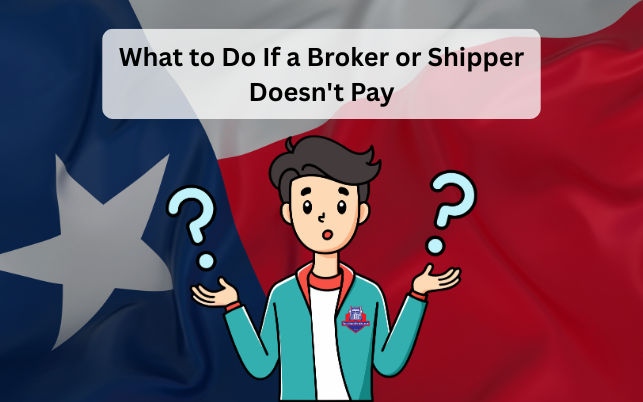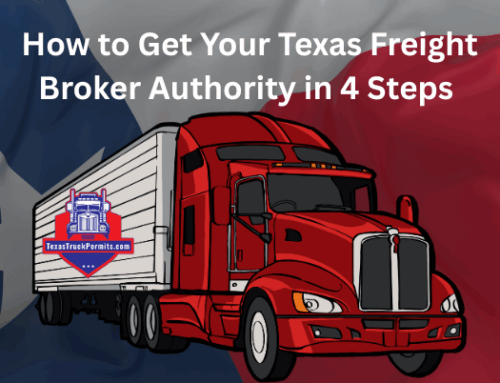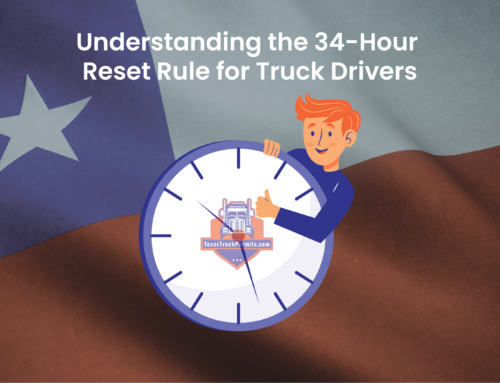What should truckers do if a broker refuses to pay?
In the trucking industry, getting paid on time is crucial for maintaining cash flow and keeping your business running smoothly. Unfortunately, payment disputes or delays from brokers or shippers are a common cash flow challenge faced by owner-operators and trucking companies. If a broker or shipper doesn’t pay, it can put your operations at risk and cause unnecessary stress. In this blog, we’ll discuss steps you can take to handle nonpayment issues, protect your trucking business, and prevent similar situations in the future.
1. Understand Your Contractual Rights
The first step when dealing with nonpayment is to review your contract with the broker or shipper. Contracts typically outline the payment terms, including:
- Payment terms.
- Late payment penalties.
- Dispute resolution procedures.
Understanding these terms will help you determine your legal standing and decide your next steps. Ensure that you keep a signed copy of all contracts and agreements for reference.
2. Verify the Billing Details
Sometimes, nonpayment issues arise due to errors in invoicing. Double-check that:
- The invoice was sent to the correct recipient.
- The payment terms, amounts, and due dates are accurate.
- All required supporting documents, such as the Bill of Lading (BOL) and proof of delivery, were included.
If there was a mistake, correct it promptly and resend the invoice.
3. Communicate Professionally
When payment is overdue, start by reaching out to the broker or shipper. A polite and professional inquiry can often resolve the issue without further escalation. Here’s how to approach the conversation:
- Call or email the accounts payable department to confirm receipt of your invoice.
- Ask if there are any issues causing the delay.
- Request a specific timeline for payment.
Document all communication, including emails and phone call notes, to build a record of your efforts to collect payment.
4. Send a Formal Demand Letter
If initial attempts to resolve the issue fail, consider sending a formal demand letter. A demand letter serves as a written notice that payment is overdue and includes:
- A summary of the unpaid invoice(s).
- A clear request for payment by a specific date.
- A warning about potential legal action if payment is not made.
Demand letters are often taken seriously, as they signal your intent to escalate the matter.
5. File a Freight Claim
In some cases, filing a freight claim may be appropriate. Freight claims address specific disputes, such as damages, lost goods, or discrepancies in the shipment. Be sure to:
- Follow the guidelines set forth by the Federal Motor Carrier Safety Administration (FMCSA).
- Provide all necessary documentation to support your claim.
- Keep records of all correspondence related to the claim.
6. Leverage a Collections Agency
If payment is still not received, hiring a collections agency can be an effective option. These agencies specialize in recovering unpaid invoices on your behalf. While they charge a fee or commission, it may be worth the cost to secure payment and free up your time to focus on operations. Many collections agencies work on a contingency basis which means that you only pay if the agency is able to collect.
7. Take Legal Action
For persistent nonpayment issues, pursuing legal action may be necessary. Options include:
- Small Claims Court: Suitable for smaller amounts, typically under $10,000 (varies by state).
- Civil Court: For larger disputes or breaches of contract.
- Bond Claims: Brokers are required to have a $75,000 surety bond. You can file a claim against the broker’s bond through the FMCSA if they fail to pay.
Can you file a bond claim against a broker who doesn’t pay?
Consult with a transportation attorney to determine the best course of action for your case.
8. Prevent Future Nonpayment Issues
While no system is foolproof, there are steps you can take to reduce the risk of dealing with nonpaying brokers or shippers in the future:
- Run Credit Checks: Before entering into a contract, use tools like DAT or trucker factoring services to assess the broker’s or shipper’s payment history.
- Use Factoring Services: Factoring companies pay you upfront for your invoices, taking on the responsibility of collecting payment from the broker or shipper.
- Stay Organized: Keep detailed records of contracts, invoices, and correspondence.
- Build Relationships: Work with reputable brokers and shippers with proven track records.
9. Consider Trucking Factoring
What is the benefit of using a trucking factoring company?
Trucking factoring(freight factoring) is a popular solution for trucking companies facing cash flow challenges. By selling your unpaid invoices to a factoring company in Texas, you receive immediate payment, typically within 24 hours. Factoring services often include:
- Credit checks on brokers and shippers
- Professional collections assistance
- Fuel advances to cover operating expenses
How do freight factoring services help with cash flow?
Factoring not only helps you avoid nonpayment issues but also ensures a steady cash flow to support your business growth.
Our partnered trucking factoring company has helped grow 100’s of successful trucking companies throughout Texas and the United States. Headquartered in Houston, Texas, our partner factor provides best in class local factoring services.
Final Thoughts
Nonpayment by brokers or shippers is an unfortunate reality in the trucking industry, but it doesn’t have to derail your business. By understanding your contractual rights, maintaining clear communication, and utilizing resources like demand letters and freight factoring, you can effectively address and prevent payment issues.
At Texas Truck Permits, we’re committed to supporting trucking companies with compliance, cash flow solutions, and expert advice. If you’re dealing with nonpayment or looking for ways to streamline your operations, contact us today to learn how we can help.







Leave A Comment